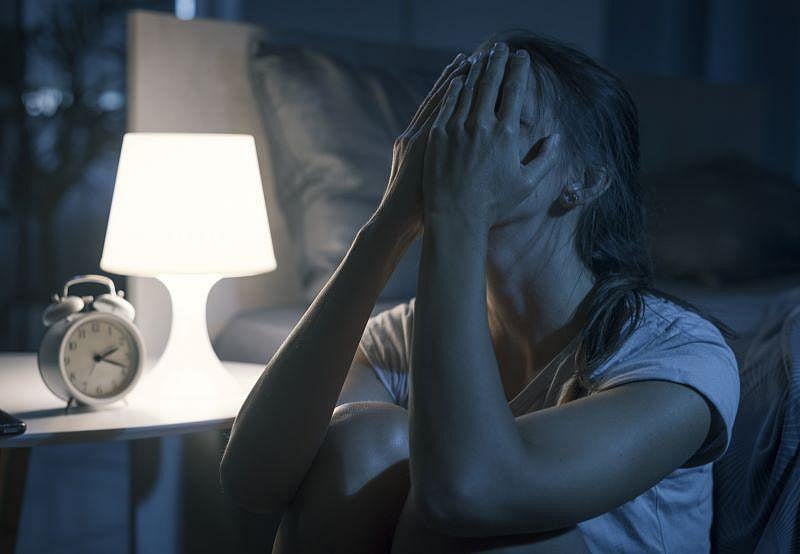Get Healthy!

- Sue Benzuly, RN
- Posted March 9, 2023
Why Can't I Sleep? What Can I Do About It?
Tossing and turning, waking up frequently or lying awake for hours is no laughing matter.
According to the National Sleep Foundation, the average adult should aim for seven to nine hours of sleep each night. Why? The Cleveland Clinic explains that lack of sleep can lead to:
- impaired memory
- relationship stress
- decreased quality of life
- increased risk of a car accident
Chronic lack of sleep, or insomnia, can also lead to serious health issues including:
- high blood pressure
- diabetes
- cardiac issues
- obesity
So, if you are asking yourself why can't I sleep, here are some tips on getting better shut-eye:
Try sleep restriction therapy
According to Dr. Sanjeev Kothare of Northwell Medical in New Hyde Park, N.Y., "insomnia from an unknown cause or underlying anxiety or depression"is one of the more common sleep disorders.
The American Academy of Sleep Medicine says that approximately 35% of adults experience insomnia at some point. One potential solution is sleep restriction therapy. The basis for this therapy is that time spent in bed and not sleeping can increase anxiety and worsen insomnia. For example: If you usually go to bed for seven hours but only sleep for five hours, then you would limit your time in bed to five hours. Once your sleep improves, slowly increase your time in bed by 15 to 30 minute increments. Initially, sleep restriction may leave you tired during the day. Use caution when driving or using dangerous equipment.
Time your exercise for better sleep
Regular exercise has numerous sleep benefits. Yet, the time of day exercise happens may impact the quality of your sleep. The Sleep Foundation notes that moderate to vigorous exercise can:
- decrease the time it takes to fall asleep
- reduce daytime sleepiness
- reduce the amount of sleep medication needed
The foundation noted that the time of day may not affect sleep for some people. However, exercise can raise your core body temperature, reducing sleep efficiency. If experiencing sleep issues, avoid vigorous exercise before bed. Include gentle yoga or light stretching.
Put your phone down
According to the Sleep Foundation, using your phone or computer before bedtime interferes with sleep. The blue light emitted from the devices can disrupt your sleep stages. It decreases rapid-eye movement (REM) and slow-wave sleep, which are vital for brain health. To reduce the effect of these devices on rest, use night-time mode. This decreases the amount of blue light emitted and dims the display. Avoid using screens for one hour before bedtime. Consider using blue-light-blocking glasses. Make the bedroom a "screen-free"room.
Make sure your bedroom is cool, dark and quiet
A room that is too bright, warm, or noisy will decrease the odds of a good night's sleep.
Dr. Fariha Abbasi-Feinberg, a sleep specialist with Millennium Physician Group in Fort Myers, Fla., said, "Make sure that the bedroom is cool, dark and quiet. Sometimes white noise, such as a fan, can help."She suggests using comfy, soft sheets and a nice heavy comforter. Consider using blackout blinds or drapes to limit the room's light. Lower the temperature in the bedroom by a few degrees to create an optimal sleep environment.
Seek professional help if all else fails
Abbasi-Feinberg recommends discussing sleep issues with a primary care provider if "sleep issues interfere with your ability to function during the day or cause you to be drowsy while driving or at work."
According to Abbasi-Feinberg, you can expect the following when seen at a sleep clinic:
"The first visit usually consists of getting a thorough sleep and medical history, and a review of medications and supplements, as those can affect sleep. We can provide some advice and guidance to improve the quality of sleep. Sometimes a sleep study is required, such as a home-based sleep study or a sleep study where you spend the night in a sleep lab. It will depend on the conditions being evaluated. The results are then reviewed, and further interventions are based on those results."




